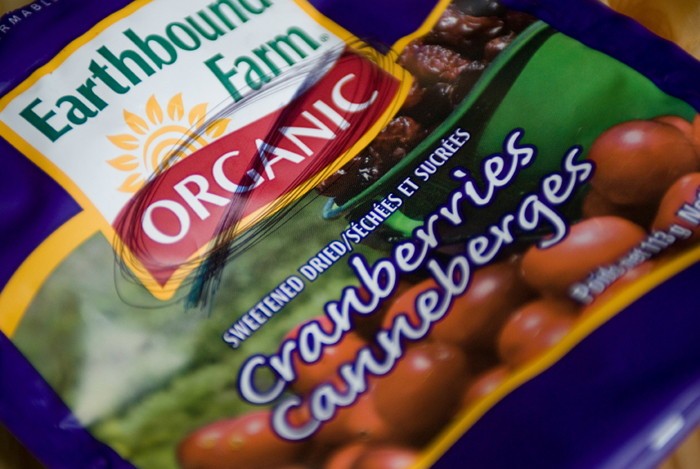Uncertified organic
Organic farmers and distributors don’t see organic certification as necessary
However there’s a double-barreled challenge for farmers who grow organic: Not only must they avoid chemical sprays and risk crop failure, they also have to endure the gruelling process of becoming certified organic.
As a result, some just don’t get certified.
Theresa and Geoff Dyck own Boundary Creek Farm near Winnipeg Beach and practice organic farming, even though they aren’t certified. Instead of wholesale marketing, they participate in a system called community-shared agriculture.
City residents can buy a $680 share in the farm and in return receive produce for a 20-week period.
“We direct-market all our produce,” said Theresa.
By “having a very open dialogue with our customers,” she said, shareholders maintain trust in the farm’s organic practices. She added that customers are welcome to come to the farm and look around.
Dyck said she asked the farm’s customers if they preferred that the farm be certified. None did.
Trust holds precedence over certification at Organic Planet Worker Co-operative, according to grocery manager Stephen Kirk.
“[Organic certification] is not a requirement for us,” he said. “We rely on personal relations with our producers.”
Organic certification costs about $1,500 per year, according to Dyck.
“There’s the cost. There’s also the paperwork,” she said.
In order to be certified organic, farmers have to document all their farming practices as well as the quantity of every product produced.
“I don’t know how they do it, these organic farmers,” said Lana Knor, farmer/owner of Knor’s Garden Korner, a non-organic farm. “They don’t use sprays to protect against weeds and bugs. If they do spray, they use organic sprays, which are far more expensive.”
Published in Volume 64, Number 7 of The Uniter (October 15, 2009)







